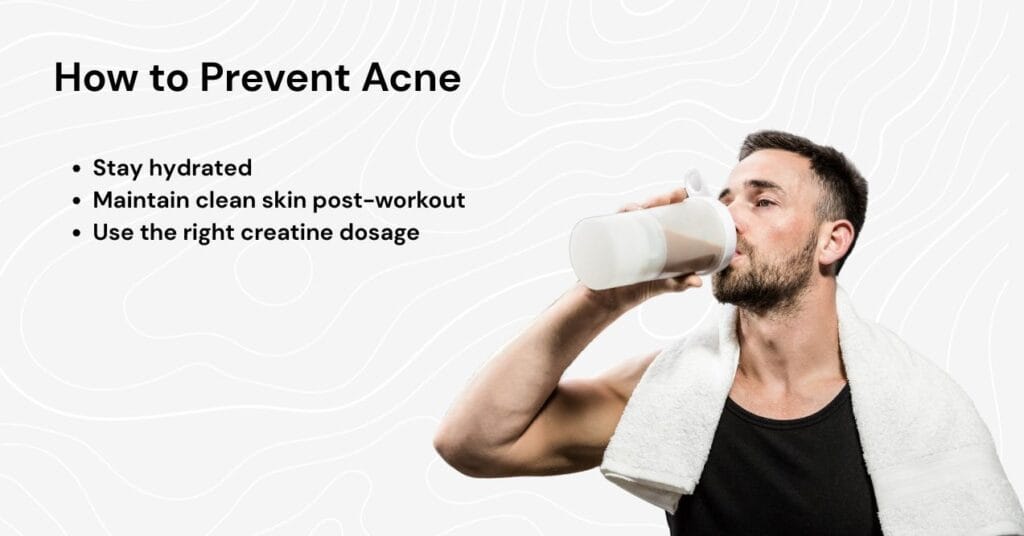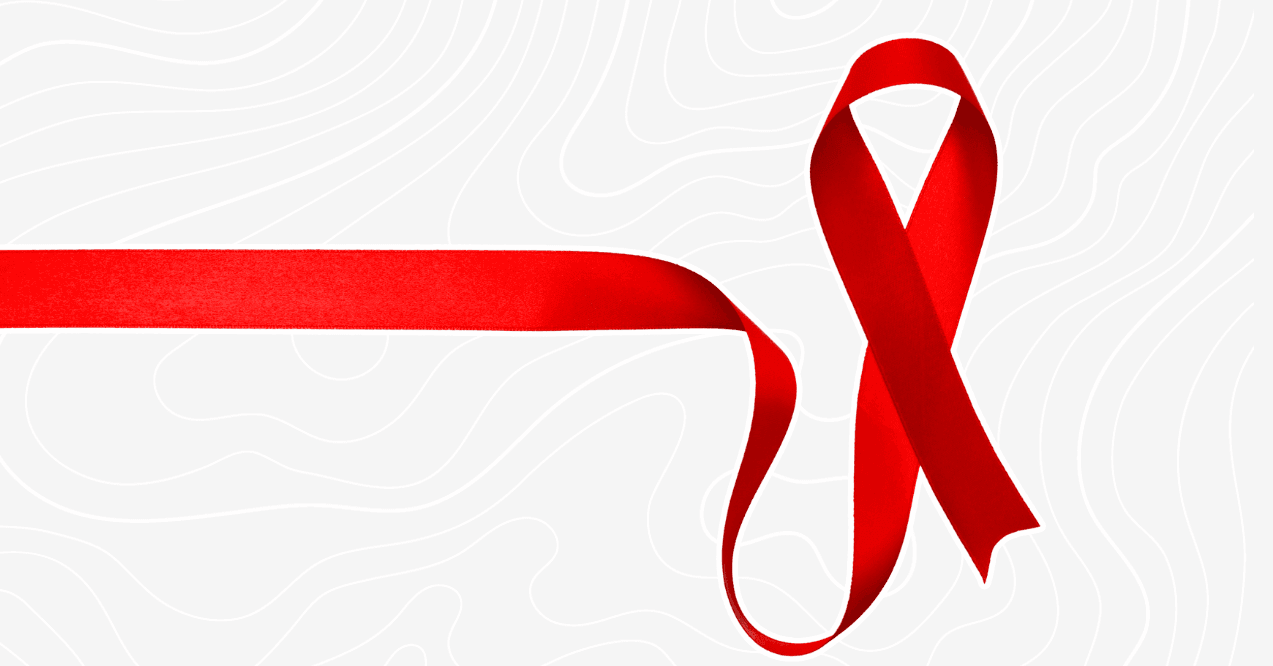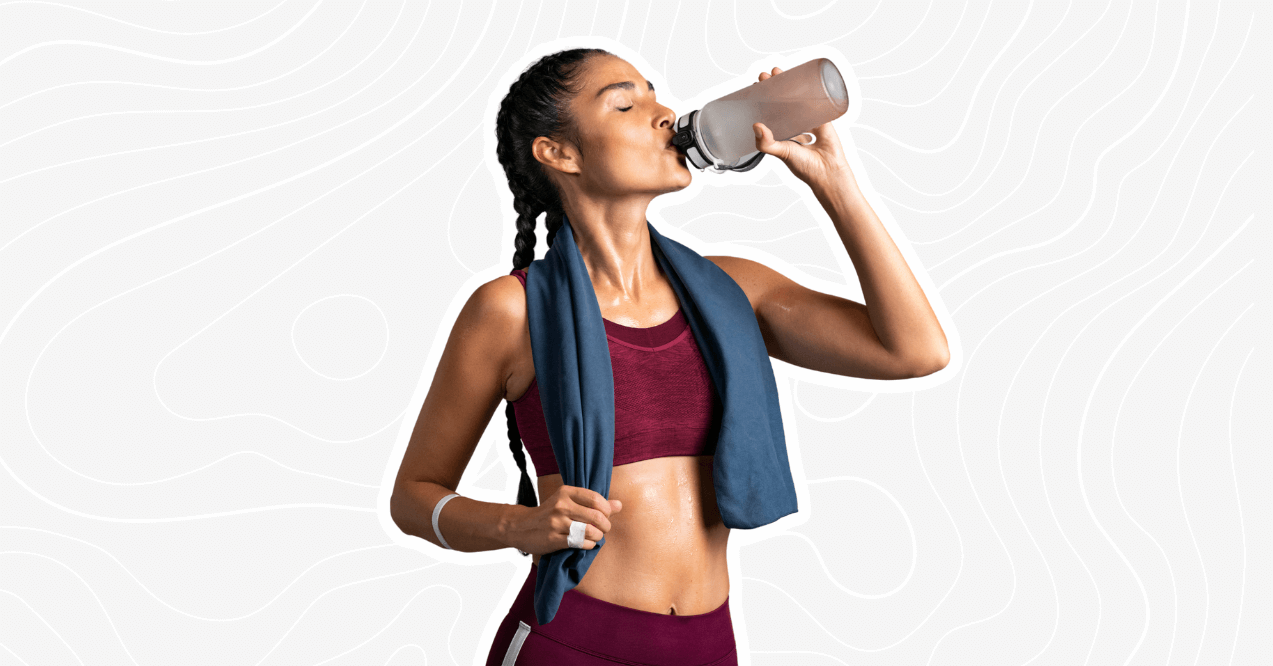Does Creatine Cause Acne? What the Research Says
Creatine stands as one of the most extensively researched and widely used supplements in the fitness world, known for supporting strength, performance, and muscle growth. With millions of users worldwide, creatine has earned its reputation as an effective ergogenic aid. However, questions about potential side effects, including skin concerns, continue to circulate among both new and experienced users.
This blog examines the relationship between creatine supplementation and skin health, specifically addressing whether scientific evidence supports any connection to acne development.
Does Creatine Cause Acne?
When exploring whether creatine supplements affect skin health, it’s important to note that scientific research hasn’t established a direct causative relationship. Current studies examining creatine’s effects on skin are limited, and the available evidence doesn’t conclusively link creatine supplementation to acne development. However, many gym-goers report skin changes after beginning supplementation, which has led to several theories worth exploring.
Hormonal Response
Creatine may influence certain hormone levels in some individuals. Research suggests that creatine supplementation might temporarily increase dihydrotestosterone (DHT) levels – a male hormone that can stimulate oil production in skin glands. For individuals already predisposed to acne, this hormonal shift could potentially contribute to breakouts.
The connection between creatine and acne may be stronger in these hormone-sensitive individuals, though effects vary significantly with many users experiencing no skin changes whatsoever.
Dehydration and Sweat
Creatine pulls water into muscle cells, which is partly responsible for its performance-enhancing effects. This mechanism requires proper hydration to function optimally. When users don’t consume adequate water while supplementing with creatine, mild dehydration may occur. This can lead to:
- More concentrated sweat during workouts
- Reduced skin hydration
- Increased likelihood of pores becoming clogged
These factors may create conditions where acne-causing bacteria thrive, particularly on areas like the back, chest, and face where sweat accumulates during exercise.
Lifestyle and Diet Factors
Many people also wonder does pre workout cause acne, which is relevant since most pre-workout formulas contain creatine. Often, skin changes that people attribute to creatine and acne may actually stem from broader lifestyle factors associated with increased training:
- Higher protein intake, which some research suggests may influence skin health
- More frequent and intense workouts leading to increased sweating
- Post-workout hygiene practices (or lack thereof)
- Stress from intensive training programs
These factors may contribute more significantly to skin changes than creatine itself. Many users who properly manage their overall lifestyle, hydration, and hygiene report using creatine with no negative skin effects whatsoever.
Side Effects and Safety
Creatine has been extensively studied for decades, with research consistently demonstrating its strong safety profile when used as directed. While skin concerns generate significant attention, it’s important to understand the full spectrum of potential effects and separate fact from fiction regarding this popular supplement.
Common Side Effects
Most side effects associated with creatine supplementation are mild and temporary:
- Water retention – During the initial loading phase, some users experience mild bloating as muscles store additional water
- Digestive discomfort – A small percentage of users report stomach cramping or nausea, typically resolved by taking smaller doses with meals
- Weight gain – Primarily due to increased water content in muscle tissue, not fat accumulation
Some users report experiencing a creatine headache when beginning supplementation, particularly during loading phases with higher doses. These headaches typically stem from changes in hydration status and often resolve with increased water intake.
Debunking Common Myths
Despite its widespread use, several misconceptions about creatine persist:
Myth – Creatine damages the kidneys.
Reality – Research shows no adverse effects on kidney function in healthy individuals using recommended doses.
Myth – Creatine always causes severe acne breakouts.
Reality – No direct causative relationship has been established; individual responses vary greatly.
Myth – Creatine-related side effects are permanent.
Reality – Most effects, including any potential skin changes, typically resolve after discontinuation.
The scientific consensus supports creatine as one of the safest performance-enhancing supplements available when used appropriately. Most reported side effects can be minimized through proper dosing, adequate hydration, and attention to individual response.
How to Reduce Acne While Taking Creatine

If you’re experiencing skin changes while using creatine, you don’t necessarily need to stop supplementation. Many users successfully manage skin health while continuing to enjoy creatine’s performance benefits. Here are practical strategies to help maintain clear skin while supplementing.
Stay Hydrated
Proper hydration is perhaps the most crucial factor in minimizing potential skin issues while taking creatine:
- Aim for at least 3-4 liters (100-135 oz) of water daily when supplementing
- Increase water intake on training days and in hot weather
- Monitor hydration status through urine color (pale yellow indicates adequate hydration)
- Consider adding electrolytes to water during intense training sessions
Maintain Clean Skin Post-Workout
Exercise-induced sweat combined with environmental bacteria creates ideal conditions for breakouts, particularly when using creatine:
- Shower immediately after workouts – ideally within 30 minutes
- Use gentle, pH-balanced cleansers rather than harsh soaps
- Change out of sweaty clothing promptly after exercise
- Consider using oil-free, non-comedogenic skincare products specifically designed for active individuals
- Wash workout clothing after each use to prevent bacterial buildup
Use the Right Dosage
How you take creatine can significantly impact both its effectiveness and potential side effects:
- Stick to recommended dosages of 3-5g daily for maintenance
- Consider skipping the loading phase if you notice skin changes
- Taking creatine on empty stomach may increase the likelihood of digestive discomfort and potentially affect hydration status – consider taking it with meals instead
- Split larger doses throughout the day rather than taking all at once
- Try micronized creatine monohydrate, which some users report causes fewer side effects
Trumeta Creatine offers an excellent option for those concerned about skin health while supplementing. With precisely measured 5-gram servings of pure Creapure® creatine, Trumeta eliminates dosing guesswork that could contribute to side effects. Its high-quality, micronized formula supports optimal absorption, potentially reducing digestive issues that might impact hydration balance.
Being vegan and free from additives, Trumeta provides a clean supplementation option that works effectively while minimizing unnecessary ingredients that could potentially affect skin. Simply mix one tablespoon with 8 oz of water daily, ideally post-workout when your body is primed for nutrient absorption.
Conclusion
So, does creatine cause acne? Based on current research, there’s no conclusive evidence establishing a direct link between creatine supplementation and acne. While some users report skin changes, these effects likely result from a combination of factors including hormonal responses, hydration status, and workout-related lifestyle changes rather than creatine itself. Most potential side effects can be effectively managed through proper hydration, consistent skincare practices, and appropriate dosing strategies.
Creatine may cause temporary water retention during initial supplementation, which can create a slightly fuller facial appearance in some individuals. This effect is typically minimal, not actual fat gain, and often diminishes as your body adjusts to regular supplementation.
While no direct causative relationship has been established, some users report skin changes when using creatine. Individual responses vary greatly based on hormonal sensitivity, hydration status, and hygiene practices. Proper supplementation protocols can minimize potential breakouts.
Research hasn’t shown creatine to directly benefit skin health. However, by supporting exercise performance and recovery, creatine may indirectly contribute to overall health including skin appearance. Maintaining proper hydration while supplementing is essential for supporting healthy skin function.
Advertisement. This site offers health, wellness, fitness and nutritional information and is designed for educational purposes only. You should not rely on this information as a substitute for, nor does it replace, professional medical advice, diagnosis, or treatment. If you have any concerns or questions about your health, you should always consult with a physician or other health-care professional. Do not disregard, avoid or delay obtaining medical or health related advice from your health-care professional because of something you may have read on this site. The use of any information provided on this site is solely at your own risk.







